August 2016
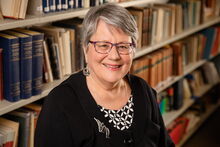
Mara Wade of Germanic Languages and Literatures received the Newberry Library Chicago's National Endowment for the Humanities and Andrew W. Mellon Foundation Fellowship.
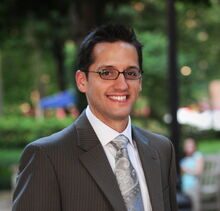
Communication Assistant Professor J. David Cisneros received the 2016 Early Career Award, given by the National Communication Association's Rhetorical & Communication Theory Division
Joaquín Rodríguez-López of chemistry won the Electrochemical Society Toyota Young Investigator Fellowship to advance his work in advancing green energy technology.
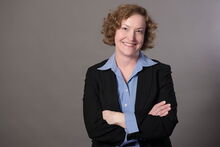
Communication Professor Cara Finnegan received the National Communication Association's 2016 James A. Winans and Herbert A. Wichelns Memorial Award for Distinguished Scholarship in Rhetoric and Public Address for her book, "Making Photography Matter: A Viewer's History from the Civil War to the Great Depression," (Illinois Press, 2015).
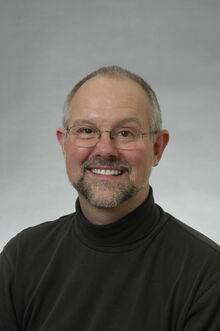
Communication Professor Marshall Scott Poole received the 2016 Lifetime Service Award given by the Organizational Communication and Information Systems Division of the Academy of Management. It recognizes him for cumulative research and service to the disciplines of Organizational Communication and Management Information Systems.
Statistics Professor Peiyong Annie Qu has been named a fellow of the Institute of Mathematical Statistics (IMS). She received the award for her influential contributions to estimating equations, semiparametric inference on correlated data, and for her outstanding service to the profession.
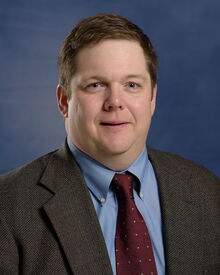
Communication Professor John Caughlin has been recognized with the International Association for Relationship Research (IARR) Mentoring Award. The IARR is an interdisciplinary organization that strives to promote advances in the scientific study of personal and social relationships.
June 2016
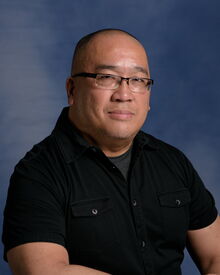
Martin F. Manalansan IV, associate professor of Asian American Studies and Anthropology, has been awarded the Richard A. Yarborough Mentoring Award by the Minority Scholars' Committee of the American Studies Association. It recognizes a scholar who demonstrates dedication to and excellence in mentoring underrepresented faculty, postdoctoral fellows, and/or college, university or high-school students.
May 2016
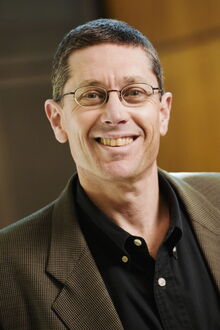
Gene Robinson of entomology won the International Behavioral and Neural Genetics Society's Distinguished Investigator Award for the importance of his research discoveries and record of achievement in the area of behavioral and neural genetics.
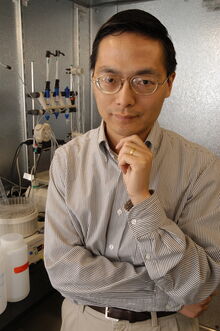
Huimin Zhao, the Steven L. Miller Chair in Chemical Engineering, won the Charles Thom Award from the Society for Industrial Microbiology and Biotechnology. It's given to individuals who have made outstanding research contributions in industrial microbiology and/or biotechnology.
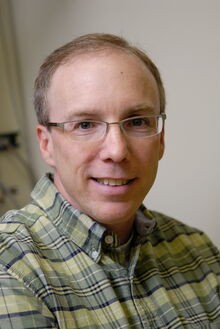
Jeffrey Moore, the Murchison-Mallory Professor of Chemistry, was awarded the American Chemical Society Edward Leete Award. He also won the Institution of Chemical Engineers' Oil and Gas Award.
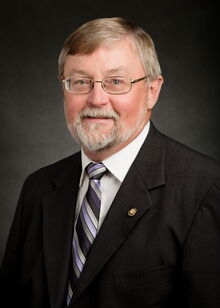
Fritz Drasgow, a professor of psychology and the dean of the School of Labor and Employment Relations, won the 2016 Distinguished Career Award from the Academy of Management (AOM). The award is given to scholars with a clear record of excellence.
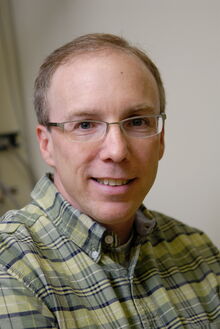
Jeffrey Moore, the Murchison-Mallory Professor of Chemistry, was awarded the American Chemical Society Edward Leete Award. He also won the Institution of Chemical Engineers' Oil and Gas Award.
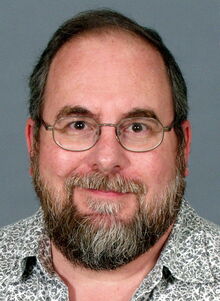
Kenneth Suslick, the Marvin T. Schmidt Professor Emeritus of Chemistry, won the Chemistry Camille and Henry Dreyfus Foundation Senior Scientist Mentor Award for emeritus faculty who maintain active research programs with undergraduates in the chemical sciences.
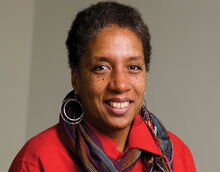
Teresa Barnes, an associate professor of history and gender and women's studies, has been recognized as a 2016-17 Fulbright Foundation Scholar. She's using the award to conduct research at the University of Zimbabwe.
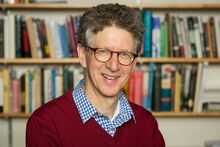
Harry Liebersohn, a professor of history, won the Humboldt Research Award, which recognizes him as someone whose "fundamental discoveries, new theories or insights have had a significant impact on their own discipline and who are expected to continue producing cutting-edge academic achievements in the future."
April 2016
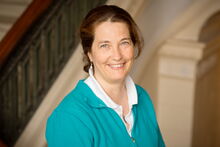
Faculty members Dennis Baron of English and lingustics, Craig Koslofsky of history and Germanic languages and literatures, Mei-Po Kwan of geography and geographic information science, Ralph W. Mathisen of history, classics, and medieval studies, and Rebecca Stumpf of anthropology were all named 2016 Guggenheim Fellows.
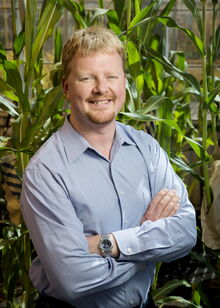
The International Society for Photosynthesis Research recognized Andrew Leakey with the Calvin-Benson Award. It's an early career prize for photosynthesis research. Leakey is an associate professor in the Department of Plant Biology.
March 2016
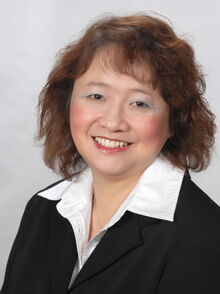
Mei-Po Kwan, professor of Geography and Geographic Information Science, won the Melinda S. Meade Distinguished Scholarship Award from the Health and Medical Geography specialty group of the American Association of Geographers. She also won the American Association of Geographers' E. Willard and Ruby S. Miller Award.

WaÏl S. Hassan was named a fellow of the American Council of Learned Societies. He's researching, "Arab Brazil: Literature, Culture, and Orientalism in the Racial Democracy." Hassan is a professor of French and Italian, and affiliated with the Center for African Studies,Latin American and Caribbean Studies, the Center for Global Studies, and English.
February 2016
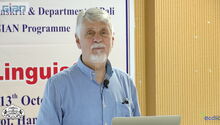
Hans Henrich Hock a professor emeritus of linguistics, has been awarded the Sukumar Sen Memorial Gold Medal from the Asiatic Society in Calcutta, India. The society was founded by Sir William Jones (who called attention to the relation between Indo-European languages) and precedes the Royal Asiatic Society of England and Ireland.
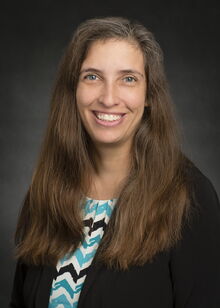
Carla Cáceres of animal biology has been elected a fellow of the Ecological Society of America for research of fundamental importance that spans the fields of evolutionary ecology, population ecology, community ecology, and disease ecology, as well as extensive outreach work.
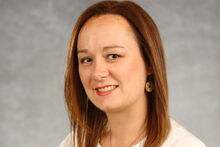
Chemistry faculty members Kami Hull and Josh Vura-Weis, along with Lijun Liu of geology, have been selected to receive Faculty Early Career Development (CAREER) Awards and grants from the National Science Foundation to support their research program. The prestigious award provides up to five years of funding to junior faculty members who exemplify the role of teacher-scholars through outstanding research, excellent education, and the integration of education and research.

Four LAS faculty members received the 2016 Sloan Research Fellowship for early-career scientists from the Alfred P. Sloan Foundation. They include Elena Fuchs of mathematics, Kami Hull of chemistry, Joaquín Rodríguez-López of chemistry, and Yue Shen of astronomy.
David W. Flaherty, assistant professor of Chemical and Biomolecular Engineering, received a 2016 National Science Foundation CAREER Award for his research proposal, "Molecular Understanding and Catalyst Design for the Direct Synthesis of H2O2." The National Science Foundation's Faculty Early Career Development Program's CAREER Awards are prestigious and competitive awards given to junior faculty who exemplify the role of teacher-scholar.
December 2015
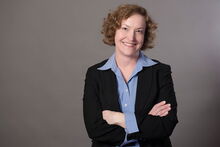
Four LAS faculty members received National Endowment for the Humanities Fellowships. They include Eugene Avrutin of history; Eric Calderwood of comparative and world literature; Cara Finnegan of communication; and Derrick Spiresof English.
November 2015
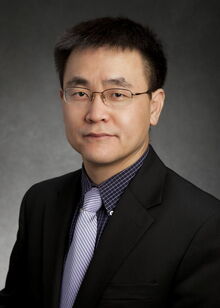
Five faculty members affiliated with LAS were named fellows of the American Association for the Advancement of Science. They include University President Tim Killeen, an affiliate in atmospheric sciences; William Metcalf, microbiology; Ralph Nuzzo, chemistry and materials science and engineering; Stephen Portnoy, emeritus in statistics; and Hong Yang, chemical and biomolecular engineering.
September 2015
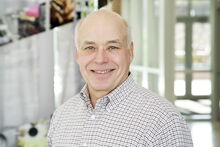
Donald Ort, the Robert Emerson Professor of Plant Biology, was inducted into the United States Department of Agriculture's Agricultural Research Service Science Hall of Fame.
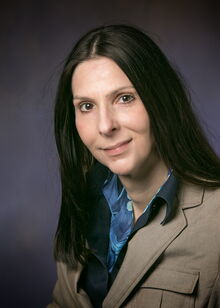
Mary Kraft received the 2015 Early Career Research Award from the Prairie Chapter of the American Vacuum Society. She presented an award talk at the AVS Prarie Chapter 2015 Symposium at the University of Notre Dame. Kraft is a professor of chemical and biomolecular engineering.
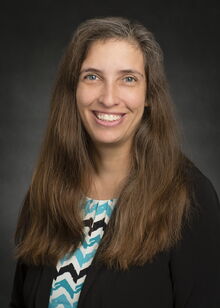
Carla Eva Cáceres, professor of animal biology, has been named a 2015 University Scholar. Caceres is a leading ecologist who works on aquatic ecosystems. Her main study organism has been the water flea.
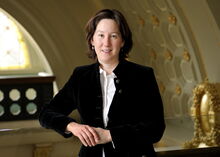
Clare Haru Crowston, professor of history, has been named a 2015 University Scholar. Crowston is a leading historian who has published two books about women in early modern France.
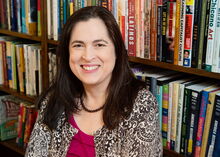
Julie Dowling, professor of Latina/Latino studies, was awarded an honorable mention for the Oliver Cromwell Cox Book Award at the American Sociological Association (ASA) meetings for her recent book, Mexican Americans and the Question of Race. The award is given by ASA’s Section on Racial and Ethnic Minorities for the most outstanding book on sociology of race and ethnicity.
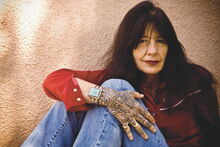
Joy Harjo, professor of English and American Indian Studies, has been awarded the Wallace Stevens Award, the highest honor granted by the Academy of American Poets. The award, which carries a $100,000 stipend, is given annually to recognize outstanding and proven mastery in the art of poetry. Harjo has written numerous books and won several awards for her poetry.
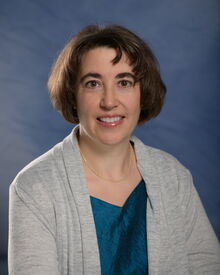
Leanne K. Knobloch, professor of communication, has been named a 2015 University Scholar. Knobloch researches how people communicate in close relationships, focusing on periods of transition for couples. Her expertise is being relied upon at very high levels of the military.
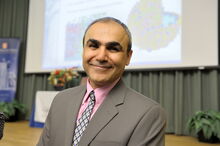
Emad Tajkhorshid, professor of biochemistry, biophysics, computational biology, and pharmacology, has been named a 2015 University Scholar. He has a spectacular record in biomedical sciences with remarkable productivity in the areas of computational biology, biophysics, and membrane proteins. His extensive research program is housed in the prestigious Beckman Institute and in the cross-campus interdisciplinary Center for Biophysics and Quantitative Biology located in Urbana.
July 2015
James Best was elected a 2015 fellow of the American Geophysical Union. As a fellow, Best is recognized as someone whose has made exceptional contributions to Earth and space sciences. Best is the Jack and Richard Threet Professor of Geology and a professor of Geography and Geographic Information Science.
April 2015
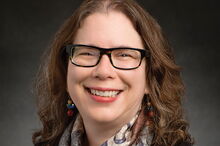
Six professors in or affiliated with the College of LAS have been elected to the National Academy of Sciences, one of the highest honors a scientist can receive. Renée Baillargeon, professor of psychology; Gary Dell, professor of psychology; Catherine Murphy, professor of chemistry; Steve Granick, professor emeritus of materials science and engineering (and affiliated with the departments of chemistry and chemical and biomolecular engineering); Taekjip Ha, professor of physics and Howard Hughes Medical Institute investigator; and John Rogers, professor of materials science and engineering (and affiliated with the Department of Chemistry) were among 84 new members and 21 foreign associates announced by the Academy.
March 2015
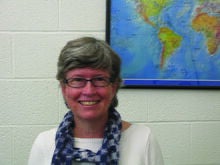
Sara McLafferty, professor and department head of geography and geographic information sciences, recently won the prestigious 2015 Melinda S. Meade Distinguished Scholarship Award in Health and Medical Geography from the American Association of Geographers. This award recognizes her contributions in research, teaching, and decades of service in the field.
February 2015
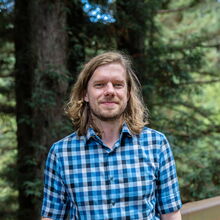
Ryan Foley, professor of astronomy and physics, received a 2015 Sloan Research Fellowship from the Alfred P. Sloan Foundation. The two-year program awards the fellows $50,000 to pursue their choice of research topics and gives the researchers flexibility in applying funds toward their research. Foley studies exploding stars and other celestial transient objects. He discovered and characterized a peculiar class of exploding stars, Type Iax supernovae. He also uses Type Ia supernovae to measure the expansion and investigate the content of the universe.
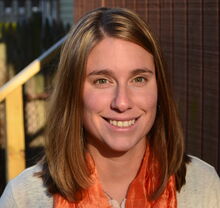
Alison Fout, professor of chemistry, received a 2015 Sloan Research Fellowship from the Alfred P. Sloan Foundation. The two-year program awards the fellows $50,000 to pursue their choice of research topics and gives the researchers flexibility in applying funds toward their research. Fout focuses on addressing environmental, biological, and energy problems by designing transition metal complexes and catalysts to understand the activation and transformation of greenhouse gases into novel compounds.
December 2014
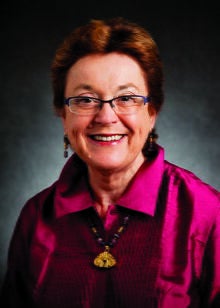
Elizabeth Lowe, professor and director of the Center for Translation Studies, was nominated for the 2015 International IMPAC Dublin Literary Award in the Portuguese category. She translated The Only Happy Ending for a Love Story is an Accident, by J.P. Cuenca, a Brazilian author. The award is presented annually for a novel written or translated into English and is the world's most valuable ($124,500) annual literary prize for a single work of fiction published in English.
Javier Irigoyen-Garcia, associate professor of Spanish, received an honorable mention in the competition for the Modern Language Association’s 2014 Katherine Singer Kovacs Prize for his book The Spanish Arcadia: Sheep Herding, Pastoral Discourse, and Ethnicity in Early Modern Spain.
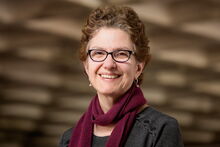
Antoinette Burton, professor of history, Bastian Professor of Global and Transnational Studies, professor of gender and women’s studies, and interim head of the Department of Sociology, received a National Endowment for the Humanities Fellowship, a prestigious award given to faculty and scholars for advanced research. Her project is “Wars Against Nature? Environmental Fictions of the First Anglo-Afghan Wars.” Burton’s history is the first to argue that representations of Afghanistan’s difficult terrain served as a strategic fiction that allowed the British to blame their limited success in subduing the region in the 19th century on its hostile environment rather than on Afghan fighters.
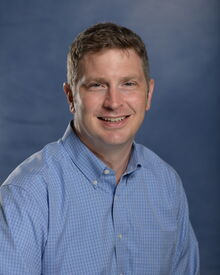
Robert Morrissey, professor of history, received a National Endowment for the Humanities Fellowship, a prestigious award given to faculty and scholars for advanced research. His project is “The Illinois and the Edge Effect: Bison Algonquians in the Colonial Mississippi Valley,” the first ethnohistory and environmental history of the Illinois Indians and their neighbors from 1200 to 1850.
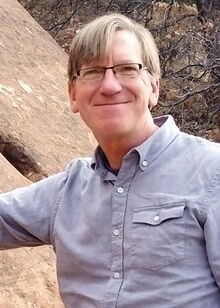
Timothy Pauketat, professor of anthropology and of medieval studies, received a National Endowment for the Humanities Fellowship, a prestigious award given to faculty and scholars for advanced research. His project is “Spirits, Birds, and Luminous Beings: Reconceptualizing Ancient Urbanism.” Pauketat reimagines the future of urbanism by looking back at some of the world’s most ancient cities, using new theories and even newer archaeological evidence from the ruins of cities and city-like places in Neolithic China, Africa, and the Americas before 1492.
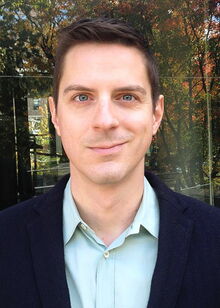
François Proulx, professor of French, received a National Endowment for the Humanities Fellowship, a prestigious award given to faculty and scholars for advanced research. His project is “Reading and French Masculinity at the Fin de Siècle.” Proulx investigates young men’s reading habits as a subject of grave social concern in fin-de-siècle (end of the century) France.
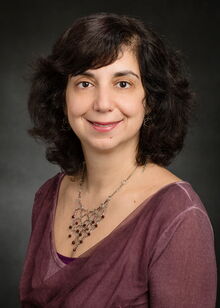
Valeria Sobol, professor of Slavic languages and literatures, received a National Endowment for the Humanities Fellowship, a prestigious award given to faculty and scholars for advanced research. Her project is “Visions of Empire in Russian Gothic Literature, 1790-1850.” Sobol investigates the connection between the Gothic elements of many Russian literary works and their imperial context.
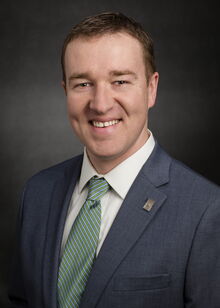
Brendan Harley, professor of chemical and biomolecular engineering, was elected to the American Association for the Advancement of Science, a prestigious scientific society composed of those who have made outstanding contributions to their field. Harley was selected for his contributions to the fields of biomaterials and tissue engineering. His research focuses on developing advanced biomaterials that replicate dynamic, varying environments found in the body.
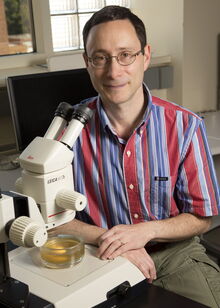
Phillip Newmark, professor of cell and developmental biology, was elected to the American Association for the Advancement of Science, a prestigious scientific society composed of those who have made outstanding contributions to their field. Newmark was cited for his work in developmental biology, with particular emphasis on regeneration and germ cell development in flatworms, which carry profound implications for the field of regenerative medicine by their ability to regenerate from just a small sample of tissue.
November 2014
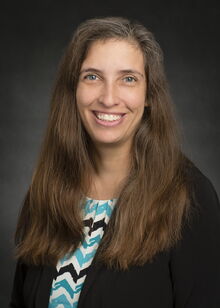
Carla Caceres, professor of animal biology and director of the School of Integrative Biology, was one of five faculty members named a 2014-15 fellow of the Committee on Institutional Cooperation’s Academic Leadership Program. The program provides leadership devevlopment for accomplished faculty members interested in learning more about academic administration.